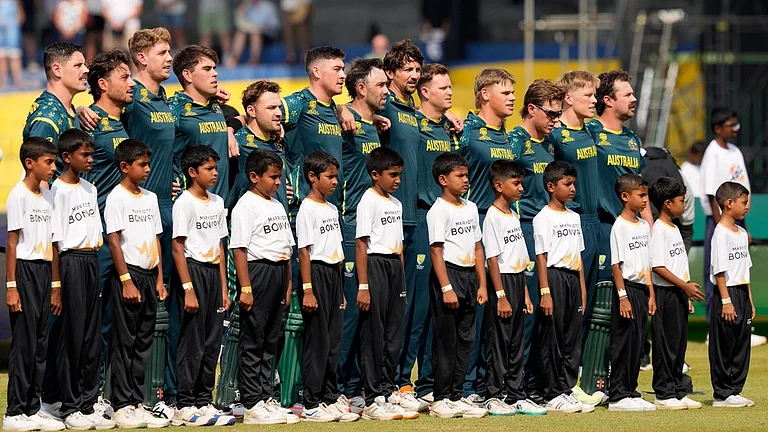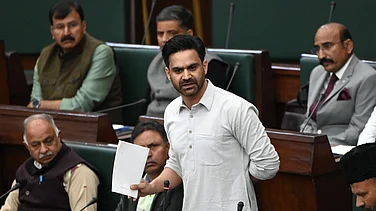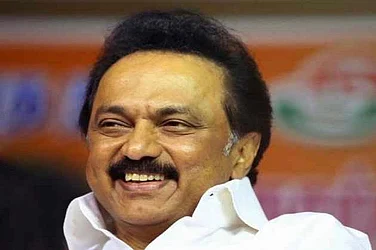The protest by five nuns of the congregation of the Missionaries of Jesus on the streets of Kochi, Kerala, was singular in many ways. For the first time in the history of the Catholic Church in India, these nuns, who had taken vows of poverty, chastity and obedience, took to the streets in an act of defiance, alleging inaction by the church and the police. A nun had alleged that the bishop of Jalandhar, Franco Mulakkal, 54, had confined and raped her several times between 2014 and 2016 at a convent in Kuruvilangad. When the church failed to act on her accusation, the nun filed a complaint with the police in June this year. But even after interrogating Mulakkal and filing an affidavit confirming rape with the Kerala High Court, the police hesitated to arrest him. The nuns took to the streets and, after a 14-day sit-in and mounting public pressure, Mulakkal was arrested. He is now in judicial custody.
The public rallied behind the protesters, who found solidarity across religious lines and professional platforms—stemming from unhappiness about the handling of sexual harassment and rape cases by successive governments and the police. The support of actors of the Women in Cinema Collective, the plantation workers of Pembilai Orumai and Muslim women from the Workers Party of India saw an unprecedented consolidation of disparate groups. In the chronicles of rape and sexual exploitation cases in the state, where even elections are fought and won over the issue, the denouement has ever been bathetic. Such cases are often swept under the rug as soon as the returns have come in; a case in point is the rape and murder of a Dalit law student in 2016 just before the Kerala assembly elections, which became pivotal in the CPI(M)-led Left Democratic Front (LDF) romping home. And in the nun’s case, the hush that issued forth from leaders of both the ruling LDF and the Congress-led United Democratic Front (LDF) was enough to wake the dead; this hardened the protesters’ stand against vote-bank politics.
With the Christian population of Kerala at 18 per cent, and narrow margins in assembly elections, a swing this way or that of a few hundred votes can see a candidate win or lose an election. Though Christians have traditionally been Congress voters, the policies of the UDF have found little favour with this vote bank of late. And with the emergence of the BJP as a serious political force, Christians have been leaning towards the Left, as was evident in the Chengannur by-election in May. “There was Christian consolidation for the CPI(M) candidate, Saji Cherian, who won by a good margin. With this victory in hand, they don’t want to spoil this newfound relationship with the Church,” says K.S. Hariharan of the Revolutionary Marxist Party.
And despite its claims of progressivism on gender justice, the CPI(M)’s record is under question. Neither the state leadership nor the Kerala State Women’s Commission acted on the rape complaint against CPI(M) legislator P.K. Sasi by a DYFI secretariat member. Activist and former party member K.M. Shajahan says, “The chairperson of the State Women’s Commission, M.C. Josephine—a CPI(M) central committee member—failed to initiate suo motu proceedings in both the Sasi and Mulakkal cases. The failure of the Women’s Commission, a quasi-judicial body, is absolutely shocking.”
The protest saw the consolidation of women as a constituency with greater bargaining power, according to state AAP convenor C.R. Neelakandan. “The political parties failed to read the signals and seem to be out of sync with the ground situation. These parties are patriarchal and have rigid hierarchal structures, and to support a movement like this would make their leaders irrelevant,” says Neelakandan, adding that Kerala’s habit of alternatively voting left and right into power may be over with women emerging as a strong force. Whether women, irrespective of caste and religion, have indeed become a vote bank will be seen in the next election.
***
- As bishop, Franco Mulakkal was also the diocesan head of the Jalandhar-based Missionaries of Jesus.
- On September 20, the Vatican granted Mulakkal’s request to be temporarily relieved of his duties.
- Mulakkal was arrested after three days of interrogation, and has been remanded in custody until October 6.
By Minu Ittyipe in Kochi


























